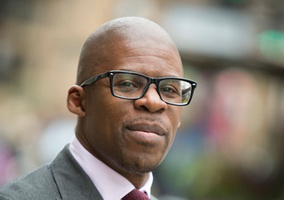A chief executive of an organisation which aims to reduce violence had said that “white-led charity and voluntary organisations need to also understand they can represent all that is oppressive within our society, whether they mean to or not”.
Writing in response to recent sector conversations about white privilege, prejudice and unconscious bias, Whitney Iles, chief executive of Project 507, has said we need to go a step further than just challenging perceptions and attitudes, and that the “key to diversity and equality in any sector” is about the “giving up and exchanging of power”.
Iles wrote in a blog post that the subject of diversity and equality is “not just about being self-aware and the diversifying of our leadership teams, it is about challenging the structures that create the problems and not being ignorant to the role we all play in an oppressive system”.
She said that charities and voluntary organisations need to focus on rebuilding systems. Iles said: “It can be argued, that most of our charities and enterprises exist within a system that is ingrained with racism and oppression, therefore if we wish to combat these issues we must focus our resources on rebuilding the systems themselves.”
‘Stepping out of the way entirely’
She said: “Social inclusion is not just about the changing of individual attitudes, it is about market reform, economic opportunity and social security. In the voluntary sector and criminal justice system, it is about opening up opportunities for BAME organisations, not just in the form of partnerships but in some cases stepping out of the way entirely. To say in short, when it comes to diversity and equality, black mentors are good, but black owned businesses are better.”
Iles wrote a blog, ‘Privilege and Prejudice. A discourse continued’, in response to an article written by Thomas Lawson, which originally appeared in Governance & Leadership magazine, about the subconscious prejudice which is present in the sector.
Iles said that, without intending to, white-led charity and voluntary organisations can “represent all that is oppressive within our society”.
She continued saying many BAME organisations don’t actually want to work for white-led organisations or form mergers. She continued: “We like our independence and believe that our communities need to be self-sustainable to stand a chance; this poses the question, rather than being a CEO leading by example in your organisation, how can your organisation lead by example in society?”
She concluded: “To finalise, we all must remember that it can feel very good to help those in need and be part of someone’s journey to ‘recovery’ but this mind state is also part of the problem.
“We must not resolve ourselves to being ambulances under the cliff, we must strive to find real solutions that tackle root causes, that change systems and challenge social structures. True diversity and equality will come when there is a re-balancing of power.”
Related articles












